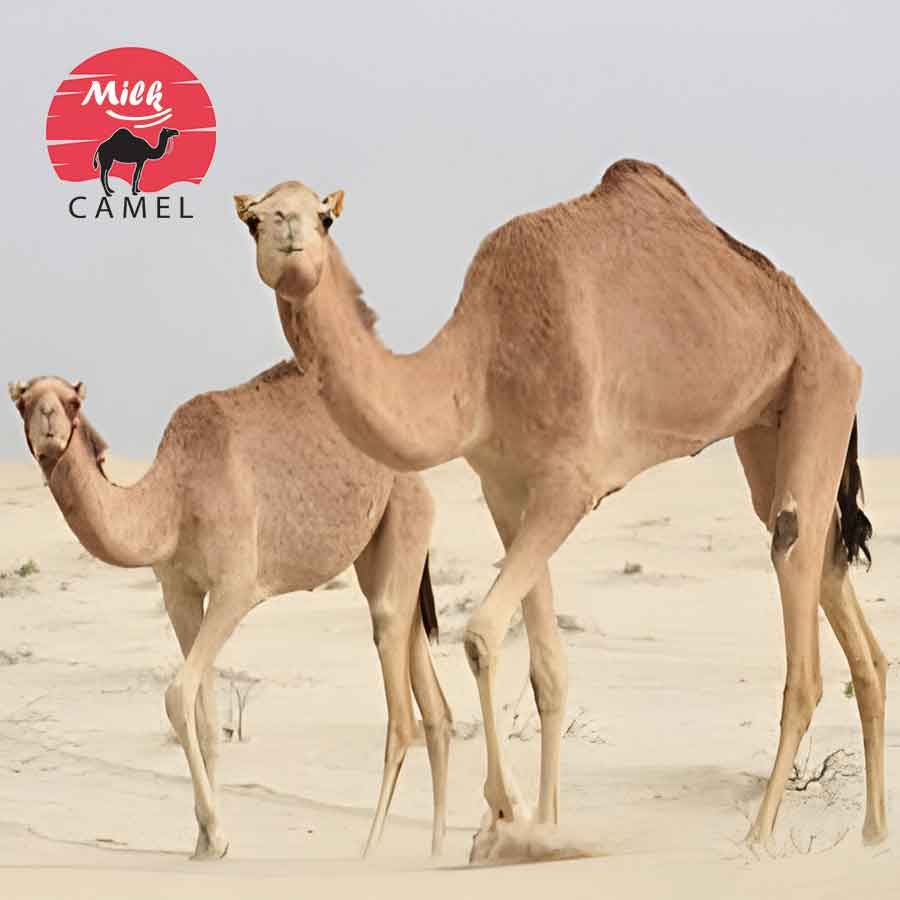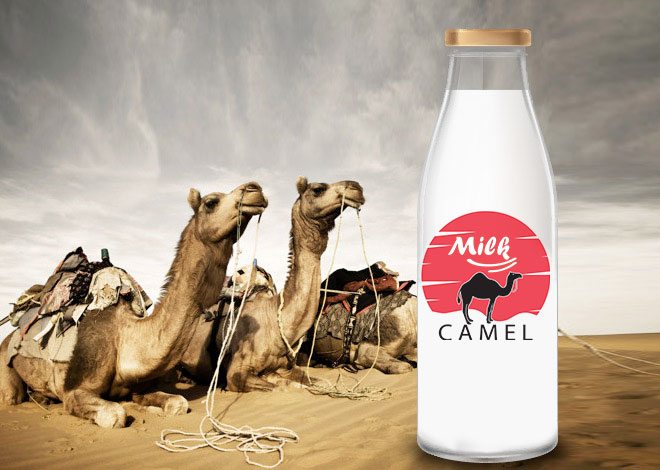Menu
Camel milk is not only cherished for its rich flavor and creamy texture but also celebrated for its unique composition, which sets it apart from other types of milk. In this article, we’ll delve into the science behind camel milk’s distinctive nutritional profile and explore the factors that contribute to its exceptional composition.
Protein Profile: One of the most striking characteristics of camel milk is its protein composition. Unlike cow’s milk, which contains predominantly casein proteins, camel milk has a higher proportion of whey proteins. These whey proteins, including lactoferrin, lactalbumin, and immunoglobulins, are known for their bioactive properties and potential health benefits, such as immune modulation and antimicrobial activity.
Fat Content and Composition: Camel milk is lower in fat compared to cow’s milk, making it a lighter option for those watching their fat intake. However, the type of fat found in camel milk is unique, with a higher proportion of unsaturated fatty acids, including linoleic acid and oleic acid. These healthy fats contribute to camel milk’s heart-healthy profile and may offer protective effects against cardiovascular disease.
Carbohydrate Composition: Camel milk contains less lactose than cow’s milk, making it more suitable for individuals with lactose intolerance. Additionally, camel milk has a different carbohydrate profile, with higher levels of oligosaccharides, which act as prebiotics and support the growth of beneficial gut bacteria. This may explain why camel milk is often easier to digest for some people compared to other types of milk.
Vitamin and Mineral Content: Camel milk is a rich source of essential vitamins and minerals, providing a wide array of nutrients vital for health and well-being. It contains higher levels of vitamins such as vitamin C and B vitamins compared to cow’s milk, as well as minerals like calcium, potassium, magnesium, and phosphorus. These nutrients play crucial roles in various bodily functions, including bone health, immune function, and energy metabolism.
Bioactive Compounds: In addition to its macronutrient content, camel milk is also rich in bioactive compounds, such as antimicrobial peptides, immunoglobulins, and growth factors. These bioactive compounds have been shown to possess antioxidant, anti-inflammatory, and immunomodulatory properties, which may contribute to camel milk’s potential health benefits, including immune support, skin health, and digestive wellness.
In conclusion, the unique composition of camel milk is a testament to its remarkable adaptability and nutritional richness. From its protein profile and fat composition to its carbohydrate content and abundance of vitamins, minerals, and bioactive compounds, camel milk offers a wealth of health-promoting nutrients in a delicious and versatile form. As scientific research continues to unravel the mysteries of camel milk’s composition and benefits, it remains an intriguing subject of study and a valuable resource for promoting health and well-being.

We take pride in offering you the finest camel milk sourced directly from the heart of Qatar. Our commitment to quality, sustainability, and ethical production practices ensures that every drop of camel milk you enjoy is of the highest standard.
